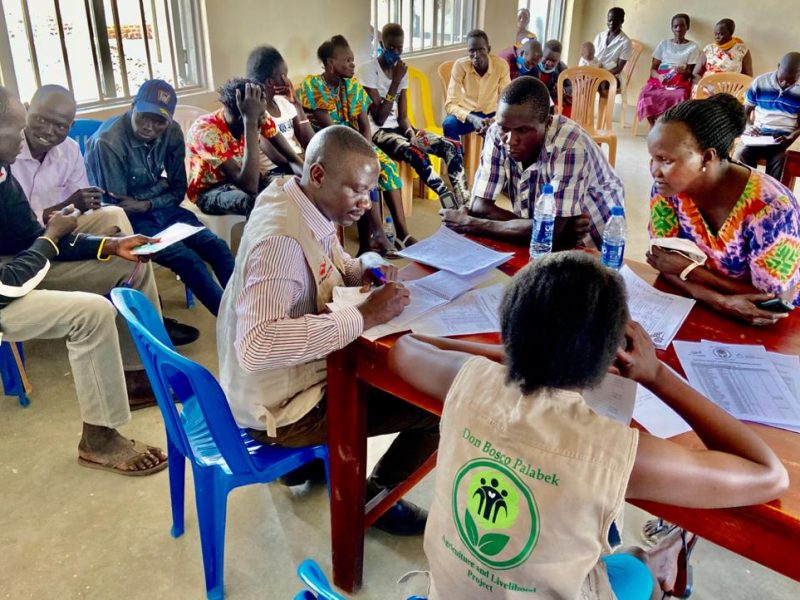[…] On the other hand, why this invitation — which seems to me to have been a very fruitful idea of the Pontifical Academy of Sciences, of Bishop Sánchez Sorondo — inviting the mayors of cities both large and not-so-large, why invite them here to talk about this? Because one of the most notable things when the environment, when creation isn’t looked after, is the unfettered growth of cities. It is a worldwide phenomenon. It is as if the heads, the big cities, made themselves large, but each time with greater areas of poverty and misery, where the people suffer the effects of environmental neglect. The phenomenon of migration is included in this sense. Why do people come to the big cities, to the poverty belts of big cities — the shanty towns, slums and favelas? Why do they do this? It is simply because the rural world doesn’t offer them opportunities. One point that is made in the Encyclical — and with all due respect, but it must be denounced — is the idolatry of technocracy. Technocracy leads to the destruction of jobs, it creates unemployment. The phenomena of unemployment are widespread and people are forced to emigrate, seeking new horizons. The high number of unemployed people is alarming. I don’t have the statistics at hand, but in a few European countries, especially among young people, youth unemployment — of those aged 25 years and under — is higher than 40 percent and in some cases even 50 percent. Between 40, 47 — I’m thinking of other countries — and 50 [percent]. I am thinking of other serious statistics given by heads of state, directly by heads of state. Projecting into the future, this makes us see a ghost, in other words, an unemployed body of youth which, today, is offered what horizon and what future? What is left for these young people: addiction, boredom, not knowing what to do with one’s life — a very hard life without meaning, youth suicide — the statistics on suicide among young people have not been published in their entirety — or searching for an ideal life under other horizons, even in guerilla projects. […]
[…] What happens when all these phenomena of excessive technicization, without caring for the environment, in addition to natural phenomena, affect migration? Unemployment and then human trafficking. Illegal work, without contracts, working “under the table” is occurring more and more frequently. How it has increased! Illegal work is truly pervasive, and this means that people don’t earn enough to live. This can lead to criminal behaviour all the problems that occur in large cities due to these migrations caused by excessive technicization. I refer in particular to the agricultural environment and also to human trafficking in the mining industry. Slavery in mines is a major issue. It involves the use of certain elements in the treatment of minerals — arsenic, cyanide which cause diseases in the population. There is a very great responsibility in this. It all bounces back, it all turns around, everything has a rebound affect against the person himself. It can include human trafficking for purposes of slave labour or prostitution — sources of work to enable survival today.
This is why I am pleased that you have reflected on these phenomena — I have mentioned merely a few — impacting the large cities. Finally, I would say that this requires the involvement of the United Nations. I have high hope that the Paris summit this November will lead to a basic and fundamental agreement. I am very hopeful. However, the United Nations must take greater interest in this phenomenon, especially in human trafficking caused by environmental issues, this exploitation of people. […]




